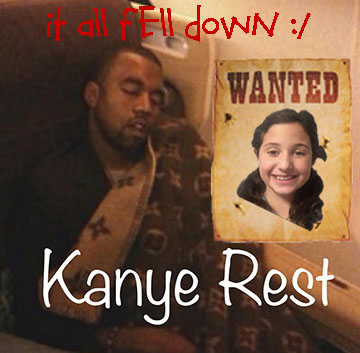

You Might Want to Clear your Nintendo DS Pictochat History
The Cancel Culture Epidemic
January 20, 2023
From Kanye West to James Cordon, celebrities are getting canceled left and right. The cancel culture in America has become a source for many a heated argument. In this modern day and age, with technology serving as a platform for people to come forward about offenses that have been committed against them or to research into a star’s past, it is astonishing how many skeletons are in these titans of fame’s closets. With all of these controversies going around, it seems that no one is safe from being scrutinized, including some Knoch High School students’ personal idols.
Before making a decision on whether or not cancel culture is necessary in today’s society, you have to look at the pros and cons. A big issue that people have with cancel culture is deciding the validity of the allegations made. In other words, should we trust just anything that comes out against a person, or should there be a more innocent until proven guilty approach?
In a conversation I had just days ago while interviewing junior Alaina Fields for this article, the situation of Rex Orange County was brought up. For context, several weeks back, Rex Orange County (a singer who is very popular with the world and several students here at Knoch, including myself) had several accusations made against him, all of which were dropped just weeks later.
The fact that charges were dropped was a comforting thing to hear–after all, it’s never good to hear that someone you support has a sketchy reputation–but as Fields said, “Anytime those allegations are thrown around, it’s bad”. This kind of news makes you realize that these superstars are still just people and can make mistakes and do unspeakable things like anyone else.
This leads us to the next topic of debate; is okay to keep listening to an artist even after they have been canceled? The most recent example of this internal conflict that people are facing concerns one rapper Kanye West. West is no stranger to controversy, but his most recent scandal concerning his anti-semitic comments has made his fans reconsider their support for him more than ever. However, while fans may not agree with his views or actions, they are still fans of his music.
The consensus that I gathered from my interviews was that it is okay to listen to canceled artists’ songs, with Fields saying, “I listen to Kanye all the time, my bad.”
This rule doesn’t only apply to singers, but any kind of entertainer, such as comedians. Ripper gave his personal take when talking about Dave Chappelle, who came under heat after some controversial comments he made.
“I feel he’s not only funny, but a fantastic commentator on social issues,” said Ripper. “I feel everything that he’s said and supported up to that point should outweigh the one thing he said that got him in a little bit of trouble.”
Comedians are a very difficult judgment call on what takes a joke too far. Since their whole career is saying shocking things and poking fun at people and situations, it is very easy for them to offend people. This just adds another layer to this already toppling cake of cancel culture.
This brings up the question: where DO we draw the line when deciding what we cancel someone over? Junior Landen Musloe said, “I support canceling people for things they said in recent times, not in their past.”
I’d have to agree with this, especially if the person has come out and apologized for what they’ve said. Let’s face it, we’ve all said or done things as some point in our pasts that we aren’t proud of, but that doesn’t mean that we really meant it or still think that way, and everyone should be given a chance to grow and change.
Some people are strictly against canceling celebrities, saying that it’s hard to trust outside allegations or that it will just give them more attention. Others think that it is important to hold these household names accountable and show that everyone should, to some extent, deal with the consequences of their actions and that their “fame won’t save [them]”, as Ripper said.
Like all issues that have to do with morals or human judgment, there isn’t a clear answer on whether cancel culture is an important implement in today’s social climate or if it is blowing things out of proportion and causing more bad than good. Let’s just hope “your mom” jokes don’t become controversial in the future, because no one in this school would be able to show their face again.
